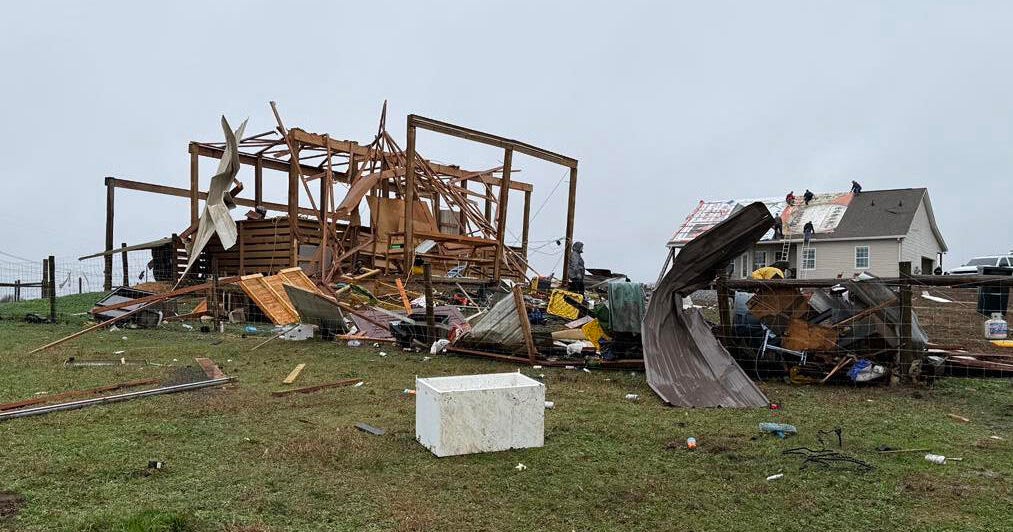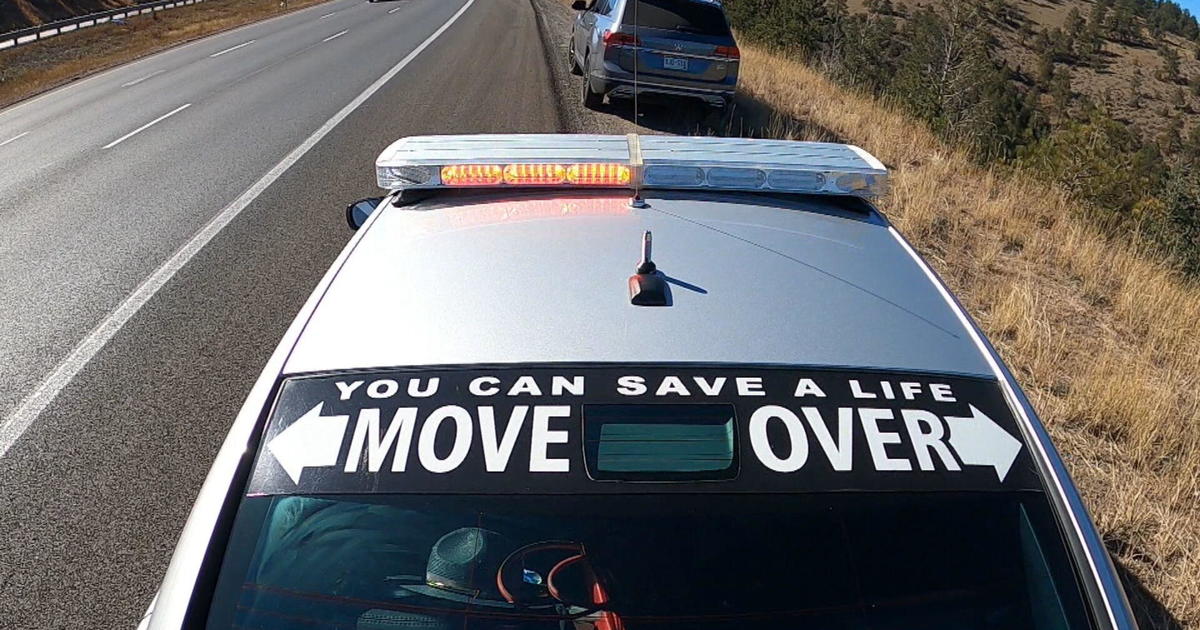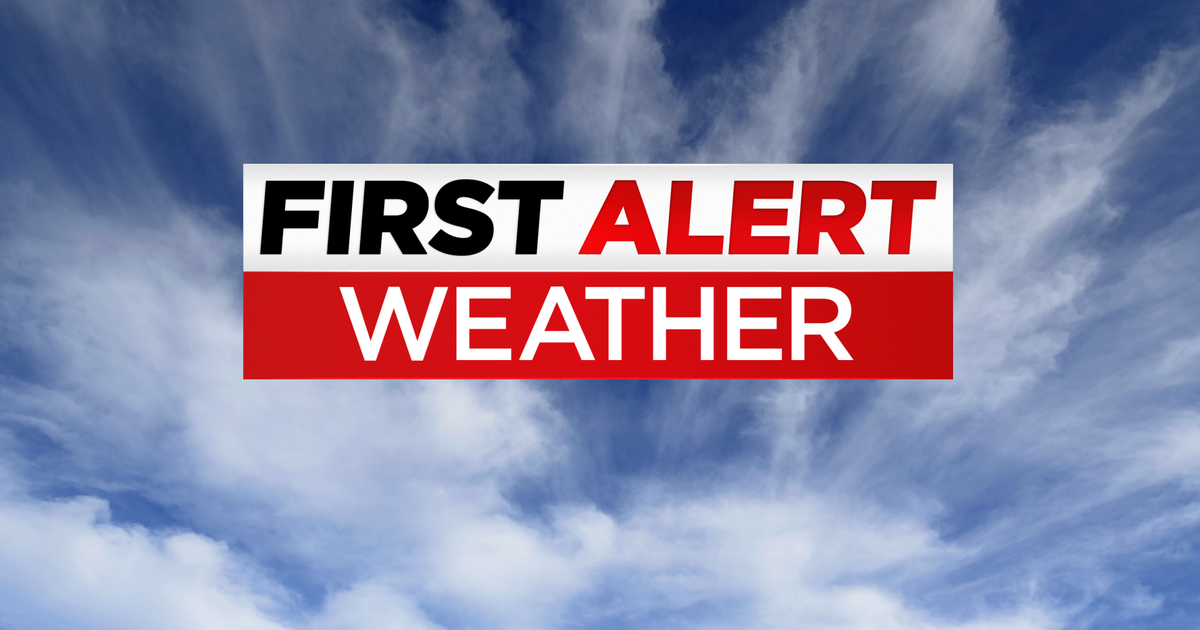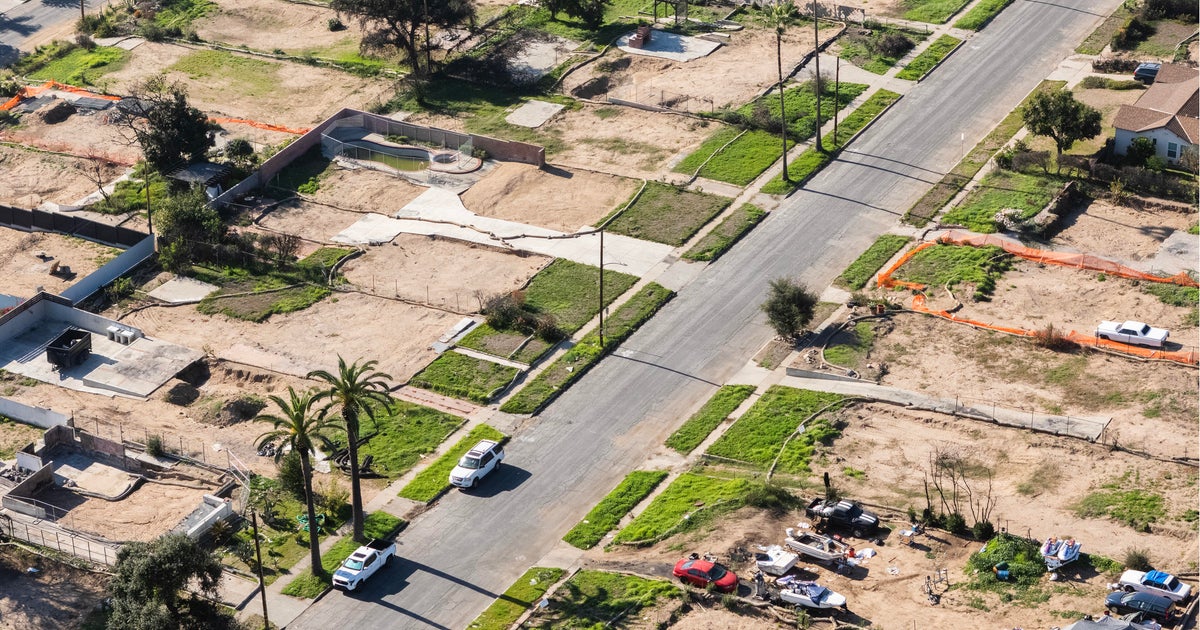Hurricane Irene Slams NC, Takes Aim At New England
BOSTON, MA/MOREHEAD, N.C. (CBS/AP) -- Hurricane Irene zeroed in on land Saturday, losing some power but still whipping up trouble even before a potentially catastrophic run up the Eastern Seaboard.
More than 2 million people were told to move to safer places, and New York City ordered the nation's biggest subway system shut down for the first time because of a natural disaster.
The National Hurricane Center in Miami said the enormous storm's top sustained winds slipped to 90 mph early Saturday from 100 mph overnight but warned Irene would remain a hurricane as it moves up the mid-Atlantic coast, still on track for the New York City area and New England.
"The hazards are still the same," NHC hurricane specialist Mike Brennan said. "The emphasis for this storm is on its size and duration, not necessarily how strong the strongest winds are."
As the storm's outer bands of wind and rain lashed the North Carolina coast, knocking out power in places, authorities farther north begged people to get out of harm's way. Officials in the northeast, not used to tropical weather, feared it could wreak devastation.
"Don't wait. Don't delay," said President Barack Obama, who decided to cut short his summer vacation by a day and return to Washington. "I cannot stress this highly enough: If you are in the projected path of this hurricane, you have to take precautions now."
Early Saturday morning, the president declared a federal state of emergency in Massachusetts. That will allow the state to pay for disaster relief efforts with federal money.
The storm's center was about 35 miles south of Cape Lookout on North Carolina's Outer Banks early Saturday and lumbering north-northeastward at 14 mph. Sustained winds of 67 mph, nearing the 74 mph threshold for a hurricane, were clocked at Cape Lookout, the National Hurricane Center said.
Tropical storm-force winds were already blowing ashore ahead of Irene, and wind and rain knocked out power to more than 91,000 customers along the North Carolina coast, including a hospital in Morehead City. A woman who answered the phone there said the hospital was running on generators.
Power was still on in Buxton on Hatteras Island, part of the Outer Banks and home to real estate agent Danny Couch. He had lost a piece of gutter and leaves were blowing around but he saw no trees down.
"We'll wait and see what happens in the next couple of hours, but right now, it's what we're used to," he said about two hours before sunrise Saturday.
A coastal town official in North Carolina said witnesses believed a tornado spawned by Irene lifted the roof off the warehouse of a car dealership in Belhaven on Friday night and damaged a mobile home, an outbuilding and trees.
Forecasters said the core of Irene would make landfall in North Carolina in the next few hours, roll up the mid-Atlantic coast Saturday night and over southern New England on Sunday.
Hurricane warnings were issued from North Carolina to coastal areas in Massachusetts, including the islands of Nantucket and Martha's Vineyard. Evacuation orders covered at least 2.3 million people, including 1 million in New Jersey, 315,000 in Maryland, 300,000 in North Carolina, 200,000 in Virginia and 100,000 in Delaware.
"This is probably the largest number of people that have been threatened by a single hurricane in the United States," said Jay Baker, a geography professor at Florida State University.
A number of flights to and from Logan Airport were among at least 6,100 canceled flights up and down the East Coast this weekend, grounding hundreds of thousands of passengers.
New York City ordered more than 300,000 people who live in flood-prone areas to leave, including Battery Park City at the southern tip of Manhattan, Coney Island and the beachfront Rockaways. But it was not clear how many would do it, how they would get out or where they would go. Most New Yorkers don't have a car.
The city said it would shut down the subways and buses at noon Saturday, only a few hours after the first rain is expected to fall. The transit system carries about 5 million people on an average weekday, fewer on weekends. It has been shut down several times before, including during a transit workers' strike in 2005 and after the Sept. 11 attacks a decade ago, but never for weather.
Aviation officials said they would close the five main New York City-area airports to arriving domestic and international flights beginning at noon on Saturday. Many departures also were canceled.
The airports are John F. Kennedy International, Newark Liberty International, LaGuardia, Stewart International and Teterboro. Mayor Michael Bloomberg said there was little authorities could do to force people to leave and warned: "But if you don't follow this, people may die."
Shelters were opening Friday afternoon, and the city was placed under its first hurricane warning since 1985. Transit systems in New Jersey and Philadelphia also announced plans to shut down.
Some hardy holdouts in North Carolina put plywood on windows, gathered last-minute supplies and tied down boats. More than half the people who live on two remote islands, Hatteras and Ocracoke, had ignored orders to leave, and as time to change their minds ran short, officials ordered dozens of body bags. The last ferry from Ocracoke left at 4 p.m. Friday.
"I anticipate we're going to have people floating on the streets, and I don't want to leave them lying there," said Richard
Marlin, fire chief for one of the seven villages on Hatteras. "The Coast Guard will either be pulling people off their roofs like in Katrina or we'll be scraping them out of their yards."
Some took to shelters for protection. Susan Kinchen, her daughter and 5-month-old granddaughter came to West Carteret High School with about 50 others. She said they didn't feel safe in their trailer, and the Louisiana native was reminded of how her old trailer lost its roof to Hurricane Katrina, almost six years ago to the day, on Aug. 29, 2005.
"We live in a trailer with her," said Kinchen, referring to the infant. "I'm not taking any chances." After the Outer Banks, the next target for Irene was the Hampton Roads region of southeast Virginia, a jagged network of inlets and rivers that floods easily. Emergency officials have said the region is more threatened by storm surge, the high waves that accompany a storm, than wind. Gas stations there were low on fuel Friday, and grocery stores scrambled to keep water and bread on the shelves.
In Delaware, Gov. Jack Markell ordered an evacuation of coastal areas on the peninsula the state shares with Maryland and Virginia. Kenneth Roe was filling up three 5-gallon gas cans at an Exxon station in Salisbury, Md., on Friday night. A manager at a Home Depot in Lewes, Del., the 34-year-old had worked 18 hours straight on Thursday and another five hours on Friday, his day off. He said the store was staying open 24 hours in order to provide supplies and that generators in particular were in high demand.
Approximately 50 generators put out at 6 a.m. were gone by 8 a.m., he said, even though each cost $600. "We're going to get something no matter what," he said of the effects of the storm.
In Baltimore's Fells Point neighborhood, one of the city's oldest waterfront neighborhoods, people filled sandbags and placed them at the entrances to buildings. A few miles away at the Port of Baltimore, vehicles and cranes continued to unload huge cargo ships that were rushing to offload and get away from the storm.
And in Atlantic City, N.J., all 11 casinos announced plans to shut down Friday, only the third time that has happened in the 33-year history of legalized gambling in that state.
"I like gambling, but you don't play with this," Pearson Callender said as he waited for a Greyhound bus out of town. "People are saying this is an act of God. I just need to get home to be with my family."
------
Jennifer Peltz reported from New York. Associated Press writers contributing to this report were Tim Reynolds in Miami; Bruce Shipkowski in Surf City, N.J.; Geoff Mulvihill in Trenton, N.J.; Wayne Parry in Atlantic City, N.J.; Eric Tucker in Washington; Martha Waggoner in Raleigh, N.C.; Mitch Weiss in Nags Head, N.C.; Alex Dominguez in Baltimore; Brock Vergakis in Virginia Beach, Va.; Jonathan Fahey in New York; and Seth Borenstein in Washington.
(TM and © Copyright 2011 CBS Radio Inc. and its relevant subsidiaries. CBS RADIO and EYE Logo TM and Copyright 2011 CBS Broadcasting Inc. Used under license. All Rights Reserved. This material may not be published, broadcast, rewritten, or redistributed. The Associated Press contributed to this report.)







